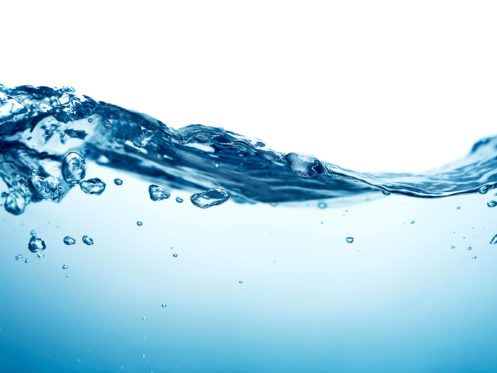Nearly 85% of the households in the United States are located in areas that contain hard water. If you’re not familiar with hard water, it’s water that has a high concentration of the minerals calcium and magnesium. If you live in an area with hard water, it means that your water is picking up large amounts of those minerals before it reaches your home. As for soft water, it’s simply water that doesn’t contain significant amounts of those minerals. To get soft water in your household, you need to either live in an area known for it or invest in a water softening system.
So, what are the differences between hard and soft water? There are quite a few of them, and soft water tends to be the preferable option in nearly every category.
Differences for Your Plumbing System
One major difference between hard and soft water is the way that they affect your household plumbing. Primarily, the difference is that hard water can be very problematic for your pipes and water flow, while soft water causes significantly fewer problems. The issues with hard water begin with the residue that it leaves behind when it flows through your piping. This gunk is called scale, and it’s a nightmare for your plumbing.
First and foremost, if large amounts of scale buildup are allowed to linger in your pipes for a prolonged period, it can result in serious leaks and significant damage. Usually, a pricey repair job will be required to remedy the issue. Additionally, there’s the issue of accumulated residue clogging up the system. When your pipes become partially obstructed, there are usually two direct consequences. For one, your household pump will need to increase the water pressure to push through the blockage, resulting in wasted energy. Secondly, you may notice a significant decrease in the water pressure from the faucets in your home. There might be other consequences as well, such as it taking longer for hot water to reach your faucets or for the pipes to make strange sounds.
If you’re experiencing plumbing problems, weak water pressure, increasing energy bills, or a mixture of those problems, there’s a good chance that you have hard water flowing through your pipes.
Differences for Your Appliances
Although your appliances shouldn’t have any problem utilizing soft water, there’s a good chance that they’ll be negatively impacted by hard water. When your clothes washing machine, dishwasher, and water heater have to operate using water that’s full of calcium and magnesium, it hampers their efficiency and increases the risk of mechanical failure. Over time, that scale buildup may even shorten the life expectancies of the appliances significantly. Even much smaller appliances, like your coffee machine and ice maker, are not immune to the damage that hard water can do. If it seems like your water-using systems are breaking down unusually often or needing to be replaced frequently, hard water is likely the culprit.
Differences for Your Skin
One of the easiest ways to determine if your home uses hard or soft water is to monitor the condition of your skin. When you bathe using hard water, the calcium and magnesium ions will remove a lot of the natural oils from your skin. Plus, those minerals make it harder for your skin to absorb moisture effectively. If you notice that your skin is regularly dry, itchy, or irritated after you bathe, it’s a strong indicator of hard water’s presence.
In addition to keeping your skin soft and comfortably moisturized, soft water is more soluble with soap than hard water. As a result, it’s easier to achieve a good lather when washing, and you’ll be able to do a better job of cleaning your skin.
Differences for Your Hair
Washing your hair with soft water regularly will have positive effects. Namely, it will help balance the hair’s pH level and keep its texture nice and soft. However, if you’re regularly washing your hair with hard water, it will remove the natural oils in much the same way that it does with your skin. That will oftentimes result in your hair feeling dry, brittle, and frizzy. In some cases, the calcium and magnesium ions in hard water will even dull your hair color.
Differences for Your Clothing
When it comes to washing your clothes, soft water comes out as the preferred choice once again. With soft water, running your clothing through the laundry machine will keep it looking new and feeling soft to the touch. Plus, it will prevent the frustrating adverse effects that come from running your laundry with hard water. Soft water is even more effective at cleaning the dirt and grime from your clothing, as it’s able to dissolve into the fabric more effectively.
In many cases, the minerals in hard water will leave behind visible deposits on your clothes. Additionally, hard water makes it more likely that the colors of your clothing will fade and that the whites will become dingy.
Differences for Household Cleaning
If your home uses hard water, you may notice lots of chalky lime buildup and soap scum around the walls of your bathtub and shower. Between scrubbing away all of that gunk and regularly needing to re-wash your clothing and dishes, hard water will add many extra hours to your home cleaning routine. Soft water won’t leave behind any annoying residue, and it will also be more effective for certain cleaning tasks around the house.
Most Common Symptoms of Hard Water
While every household is different, there are a handful of common symptoms you can look for to determine if your water contains calcium and magnesium. If you’re experiencing several of the following regularly, you could likely benefit from a water softening system.
- Persistent watermarks on faucets, dishes, and silverware
- Excessive lime and chalk buildup on shower walls
- Water tastes or smells strange
- Low water pressure
- Dry, itchy skin after showering
Water Softening Systems
If you’re tired of dealing with the many frustrating effects of hard water, your best bet would be to invest in a water softening system. These systems come in several forms, but they typically utilize the same concept. In most cases, the system features several layers of material that your water has to flow through before it reaches your pipes and appliances. Usually, one of these materials is a special resin called ion exchange resin. When your water passes through the resin, it essentially swaps out the calcium and magnesium ions for potassium or sodium ions, which are completely harmless for your household. If you’re ready to have a water softener installed in your Sacramento, CA, home, our plumbers at Huft Home Services will be glad to get you all set up.
At Huft Home Services, we’ve been providing quality heating, cooling, plumbing, and electrical services to the greater Sacramento area since 2004. We pride ourselves in creating loyal lifetime clients, and we do so by providing top-notch craftsmanship and customer service. We’re a locally-owned and operated company with a full team of friendly, NATE-certified technicians. When you hire us for a job, our team will do everything possible to exceed your expectations. Don’t let your household problems linger; give us a call at Huft Home Services today to schedule an appointment!



